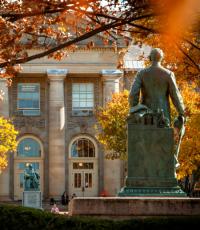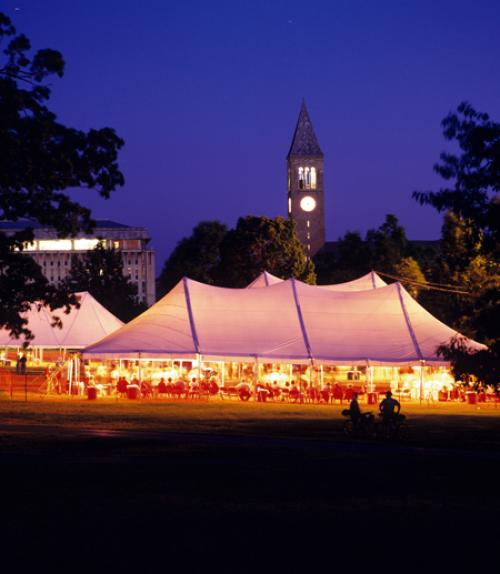
 Department Homepage
The College of Arts & Sciences
Department Homepage
The College of Arts & Sciences
Reunion 2016
Hear faculty explain gravitational waves and ponder this year's election mayhem — while connecting with old friends and making new Cornell memories — at Reunion 2016.


